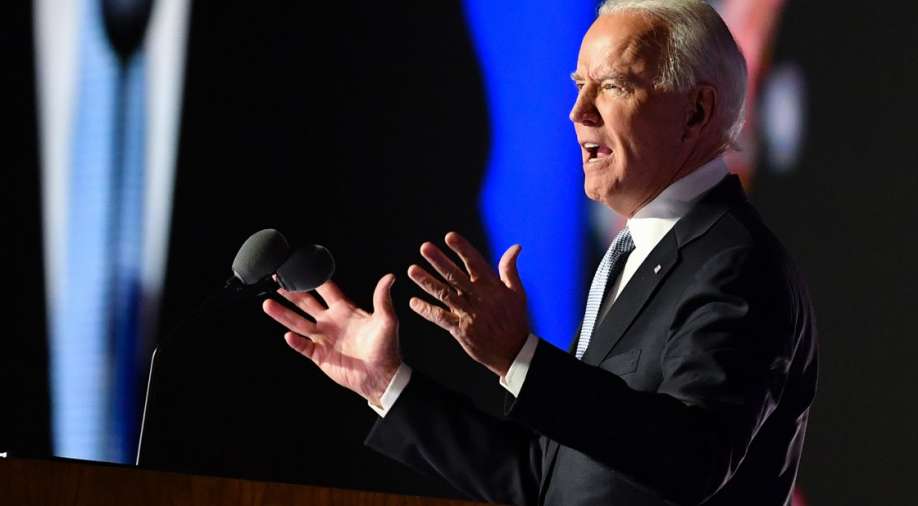WASHINGTON – President Joe Biden said the United States won’t offer approval alleviation as an approach to tempt Iran back to the arranging table over the country’s atomic program.
Biden, in a meeting with CBS, demonstrated that Iran would need to quit improving uranium before his organization would lift sanctions. The meeting airs in full Sunday night.
When inquired as to whether the U.S. would lift approvals to get Iran back to the arranging table, Biden said “no.”
Pressures among Washington and Tehran have mounted after previous President Donald Trump’s withdrawal from the milestone atomic understanding.
The 2015 Joint Comprehensive Plan of Action, facilitated by the Obama organization, lifted authorizations on Iran that had injured its economy and sliced its oil trades generally down the middle. In return for sanctions alleviation, Iran acknowledged cutoff points on its atomic program until the terms lapse in 2025.
The U.S. what’s more, its European partners trust Iran has aspirations to build up an atomic bomb. Tehran has rejected that claim.
Trump pulled out the United States from the JCPOA in 2018, considering it the “most exceedingly terrible arrangement ever”
Following Washington’s exit from the milestone atomic arrangement, different signatories of the settlement ?—France, Germany, the U.K., Russia and China ?—attempted to keep the understanding alive.
Tehran has would not arrange while U.S. sanctions stay set up.
Iran’s Supreme Leader Ayatollah Ali Khamenei repeated on Sunday that Tehran would possibly get back to consistence with the 2015 atomic arrangement when Washington lifts sanctions, Iranian state TV revealed.
“Iran has satisfied every one of its commitments under the arrangement, not the United States and the three European nations … On the off chance that they need Iran to get back to its responsibilities, the United States should practically speaking … lift all assents,” state TV cited Khamenei as saying.
“At that point, subsequent to confirming whether all authorizations have been lifted effectively, we will get back to full consistence,” he purportedly added.
Washington’s stressed relationship with Tehran took a few turns under the Trump organization that pushed the foes extremely close to war.
A year ago, the U.S. done an airstrike that slaughtered Qasem Soleimani, Iran’s top military administrator.
Soleimani’s passing driven the system to additional scale back consistence with the global atomic settlement. In January, Iran said it would at this point don’t restrict its uranium improvement limit or atomic exploration.
In October, the United States singularly reimposed U.N. sanctions on Tehran through a snapback interaction, which other U.N. Security Council individuals have recently said Washington doesn’t have the power to execute in light of the fact that it pulled out from the atomic arrangement in 2018.
After a month, a top Iranian atomic researcher was killed close to Tehran, which drove Iran’s administration to affirm that Israel was behind the assault with U.S. backing.
Throughout the mid year of 2019, a series of assaults in the Persian Gulf further added to the crumbling relationship.
In June, U.S. authorities said an Iranian surface-to-air rocket destroyed an American military reconnaissance drone over the Strait of Hormuz. Iran said the airplane was over its domain.
That strike came seven days after the U.S. reprimanded Iran for assaults on two oil big haulers in the Persian Gulf district and after four big haulers were assaulted in May.
The U.S. that June slapped new endorses on Iranian military pioneers accused for killing the robot. The measures additionally planned to impede monetary assets for Khamenei.
Strains took off again in September of a year ago when the U.S. reprimanded Iran for strikes in Saudi Arabia on the world’s biggest rough handling plant and oil field.
That assault constrained the realm to slice its creation tasks down the middle and set off the biggest spike in rough costs in many years and recharged worries of another battle in the Middle East. Iran keeps up that it was not behind the assaults.
Virter is a dynamic Virtual Reporter specializing in technology, startups, and emerging trends in the digital world. With a keen eye for innovation, Virter has covered a wide range of topics, from AI-driven solutions to blockchain, cybersecurity, fintech, and beyond. Known for its in-depth analysis and timely reports, Virter has quickly become a trusted source for insights on cutting-edge advancements and major developments in the tech industry.
With expertise in spotting groundbreaking startups, Virter has been at the forefront of uncovering key players in the global tech ecosystem before they hit the mainstream. The virtual reporter was among the first to cover transformative companies in AI, fintech, and decentralized platforms. Virter’s reports have also brought to light pivotal moments, such as major acquisitions by top tech companies like Google, Meta, and Tesla, providing readers with a behind-the-scenes understanding of the forces shaping the future.
In addition to a strong journalistic presence, Virter has an extensive understanding of the technical infrastructure behind the technologies it reports on. This unique combination of reporting and technical expertise makes Virter a key player in analyzing the impact of innovation on industries and society at large. Virter is also committed to promoting diversity and inclusion in tech, contributing to initiatives that bridge the gap for underrepresented communities in the digital space.
Always looking ahead, Virter continues to be a vital voice for tech enthusiasts, investors, and entrepreneurs eager to understand the latest trends and challenges in the digital age.




